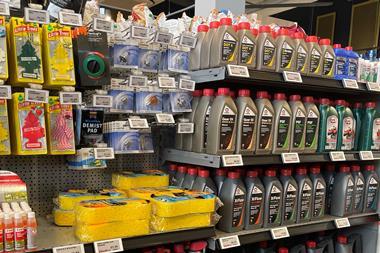It’s hard to ignore the debate on plastics and the environmental impact of the bottles and bags that are too often discarded into the countryside, waterways and oceans. One of my rules in working out how ACS should address policy challenges is to ask ’Is this a real issue, are the people who are concerned about it justified in demanding action?’ In this case, the answer is definitely ’yes’ so we should think about what local shops can do to help tackle this problem. Of course, it doesn’t automatically follow that any proposed solution is the right one, so we need to be as objective as we can, and ask what will work and what it will mean for members.
There are lots of component parts to any plan to tackle plastic waste, but the one I want to talk about here is a deposit return scheme, because this is currently the subject of detailed consultation by the Scottish government, which has already decided to introduce such a scheme and is now working out what it should look like.
Firstly, we (in this case the Scottish government) have to decide which products we’re talking about: just the small plastic drinks bottles that often end up in landfill, or all plastic bottles, or other materials too? The gap in current recycling is the packaging binned while on-the-go, so that should be our starting point.
Secondly, where do these products get returned to? Should it be to every store that sells them, which could mean lots of return points and quite an expensive system, or should we define a smaller number of return points? I think the best starting point is to analyse where people would want to return products to and build the system from there. That means transport hubs, office buildings, and yes, some stores.
Making small shops act as return points when they don’t have the space or, even worse, making them take back dirty packaging over the counter just isn’t feasible. Allowing small shops to apply to accept returns is fine, making them accept returns isn’t.
Finally, what’s going to be more effective: a scheme covering the whole of the UK, or different schemes in Scotland, England and Wales? It’s pretty clear to me that one scheme will be far better than three.






























No comments yet